All Blogs
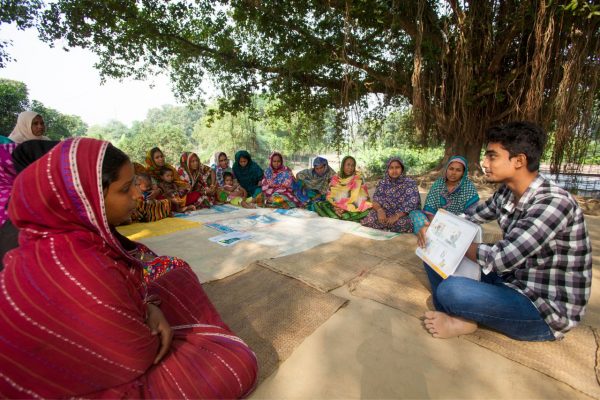
Digital financial service is widely regarded as the most important tool in advancing the cause of total financial inclusion. Despite Bangladesh being one of the early adopters of mobile money, only one in every ten women in the country has access to digital financial space. At BRAC, we went on a deep dive to identify the barriers women face in accessing digital financial services, design and implement solutions around them. Reflecting on the experience of supporting 1.4 million women make the digital transition, here’s what we learnt from our quest for an inclusive digital financial world.
To use …
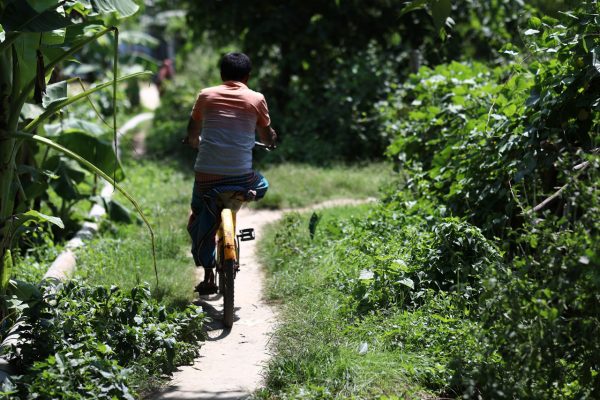
At 10 years old, Raj was diagnosed with typhoid. The consequence was life changing: Raj could no longer move his upper body.
Growing up in Khulna in southern Bangladesh, 31-year-old Raj is quiet by nature. He is especially cautious of his surroundings when he speaks. Raj shares how he was not always like this. It was the pitiful, and sometimes dismissive attitude he would receive that made it difficult to interact with people around him.
Raj always yearned for an opportunity to build a business or find a job. Ten years back, he took a risk. He set up …
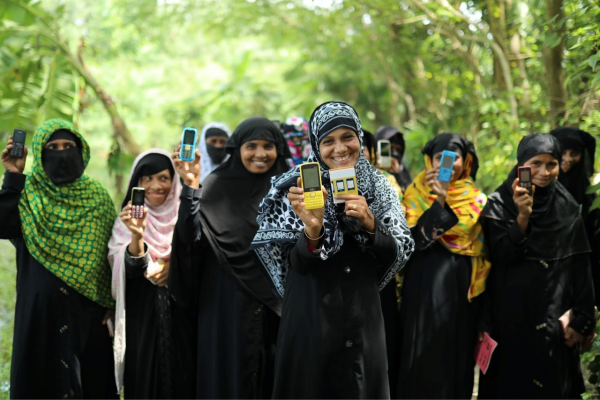
Only a handful of digital financial services companies – or fintechs – have meaningfully included underserved communities, particularly women, in their product designs. The quest for an inclusive financial space is still a work in progress. Reflecting on BRAC’s experience of supporting 1.4 million women across Bangladesh to make the digital transition, here’s what we have learnt on how organisations can effectively design inclusive digital financial products for women.
Step into the user’s shoes
Financial products and platforms must be designed keeping in mind the diverse needs and aspirations for all their clients – not only men.
For …
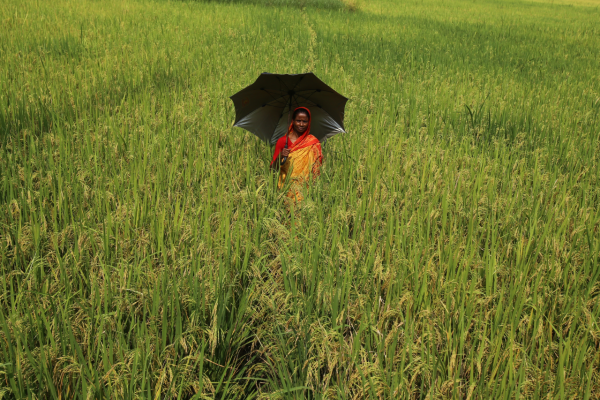
What is the biggest challenge in implementing a social security programme that efficiently reaches the people who need it the most?
Getting a wide range of stakeholders to work together.
This was the question that emerged at a joint panel on social security programmes hosted by BRAC Ultra-Poor Graduation Initiative and International Fund for Agricultural Development during the recently concluded COP27. Stefanie Bitengo, Assistant Director of National Social Protection Secretariat of Kenya, came up with the answer stated above.
It was interesting because of the similarity in the nature of the challenge faced in the implementation of social protection …

In Bangladesh, 35% of secondary school students do not complete secondary education. Nearly half of girl students dropout, owing to child marriage, an inability to pay for schooling, and needing to contribute to household earnings.
Yet, women’s participation in Bangladesh’s informal labour sector is only 35%. This prompts an urgent need for more skills-based education opportunities, especially for adolescent girls.
Through engaging young people in classroom and on-the-job training, the STAR project has been working to address this gap since 2012. Young people between the ages of 14 and 18 train to develop a skill, and are then …
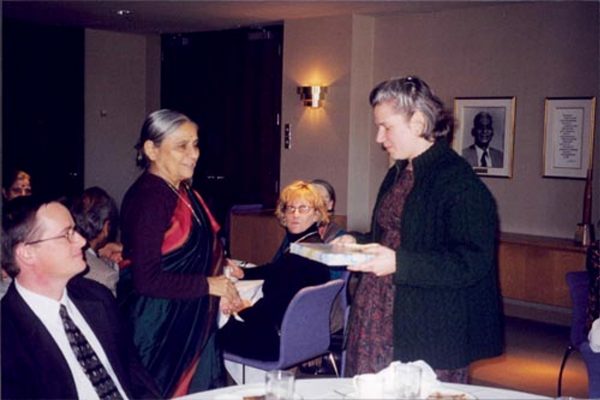
Ela Ramesh Bhatt, the founder of the Self-Employed Women’s Association (SEWA) of India, passed away on 2 November, 2022. Known as the ‘gentle revolutionary’, Ela-ben, as she is affectionately known, is recognised around the world for her Gandhian values, visionary ideals, pioneering work and quiet-centered humanity.
Established in 1972, SEWA is the largest trade union in India and the largest union of informal workers in the world, with over two million women members from multiple trades.
It is also a sisterhood of institutions, including a cooperative bank, an insurance cooperative, and over 100 producer and service cooperatives. SWEA is …
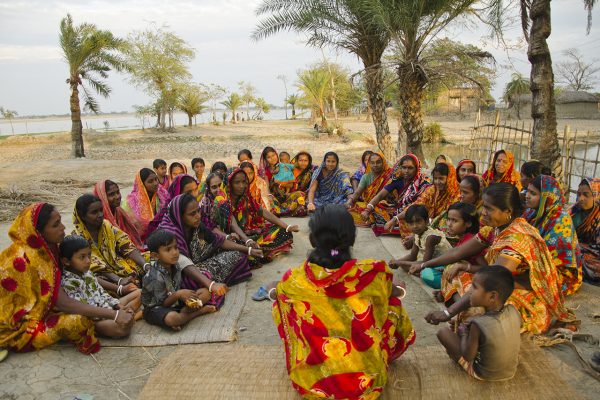
Rising salinity in Bangladesh’s coastal regions, increased heat stress, storm surges and flooding risks add to the already challenging baseline conditions of flooding and river erosion in the country. These changes, however, are not felt equally by all.
Climate change exacerbates the pre-existing inequalities of communities living in vulnerability. Communities relying on farming and already struggling with rising costs face income insecurity from erratic yields and prices. Ongoing struggles for fair wages and working conditions intensify with frequent heat waves and erratic rainfall. The impacts of the climate crisis thus occur within the long-standing dynamics wrought by the socioeconomic, …
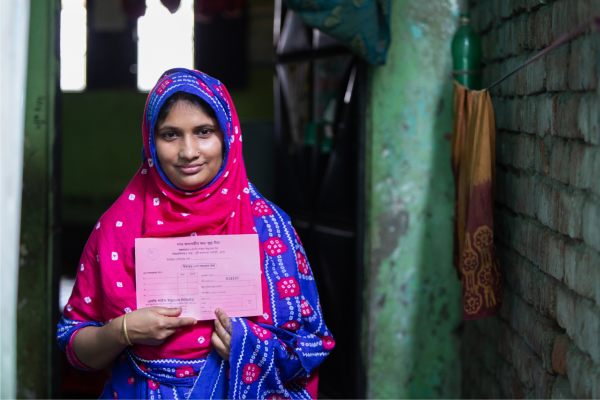
Kalpana Akhter works at a non-profit organisation in Bangladesh’s capital, Dhaka, and lives in the city’s Kamrangirchar area with her husband Khalek, who is a tailor by profession. When Khalek returned from the market with a fever one day, Kalpana tried to help him recover at home. A week passed by and there was no improvement.
Kalpana took him to a doctor at a nearby clinic, and learnt that he was suffering from lung abscess. The illness made him so weak that he gasped for air in every breath. But Khalek received the right doses of medication, and began …
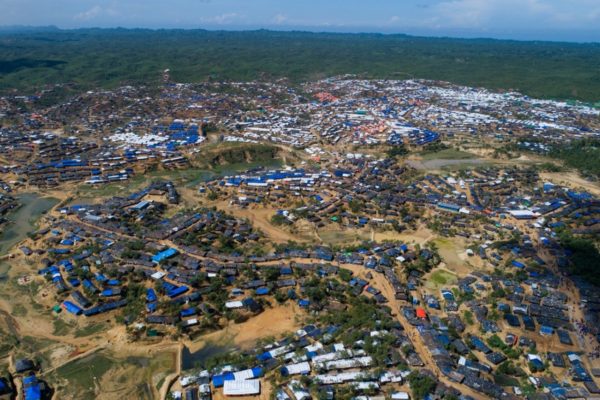
I was hiking through Teknaf Wildlife Sanctuary on 25 August, 2017. Located on the banks of the Naf River, the sanctuary was one of five protected areas where the Forest Department had put into place a co-management approach to eco-tourism, and it was home to herds of wild elephants, abundant medicinal plants and forgotten caves.
The entire sub-district had an estimated population of just over 250,000 people. It was right next to Cox’s Bazar, which with the world’s longest unbroken sea beach, was Bangladesh’s favourite holiday destination.
Spending the better part of that week there, we were some of the …
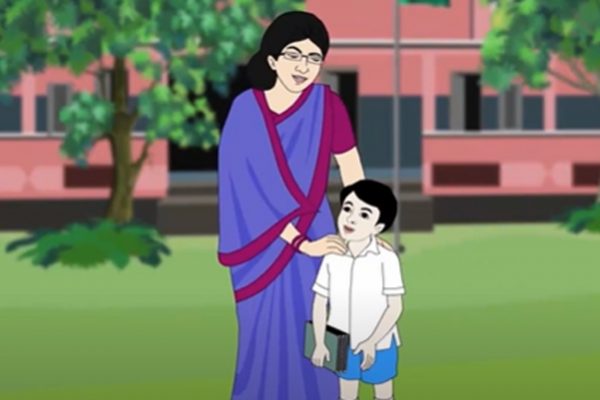
Eight-year-old Shapla* was visiting the local tailor in her village in Dinajpur, northern Bangladesh. The tailor wasn’t a stranger, Shapla saw him frequently. He offered her chocolate while taking measurements for her school uniform. While Shapla was distracted with the chocolate, the tailor grabbed her and tried to molest her. She screamed, escaped from the shop and ran home.
It was estimated that up to 1 billion children aged 2-17 years experienced physical, sexual, or emotional violence or neglect globally in 2015. A study in Australia showed that, of 1.4 million adults who were abused in childhood, 85% of …
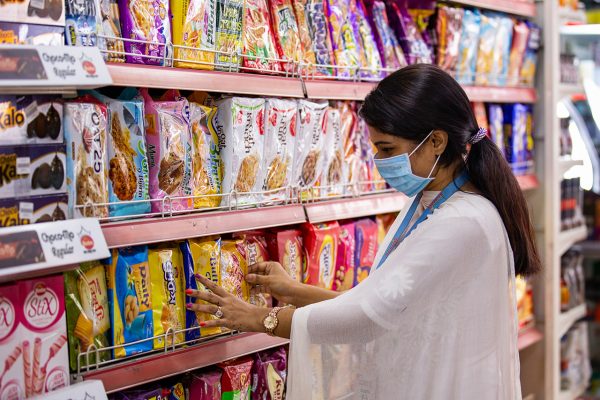
Nahidul’s work day typically starts with checking into the showroom at 9am. He works as a salesperson at Walton, a renowned electronics appliance company in Bangladesh which employs over 30,000 people. His sales approach and depth of product knowledge are highly valued.
Nahidul works in Bangladesh’s retail sector, which employs over six million people and is growing fast. Much of the growth can be attributed to the country’s rapid urbanisation. The sector has the potential and the demand to employ huge numbers of skilled young people, but vacancies remain unfilled at many super shops. The conundrum can be attributed …

Misconceptions regarding menstruation can be deadly for women. The subject remains a taboo in many cultures, perpetuating ignorance and vulnerability. In Japan, some people believe that women should not be sushi chefs because periods can throw off their sense of taste. Girls and women in India can be prevented from entering places of worship and even their own kitchen during their periods, because of the notion that they are ‘unclean’.
Some communities in rural Bangladesh think chutney – a widely used savoury condiment – will turn rancid if touched by a woman during her period. Some families consider it …

